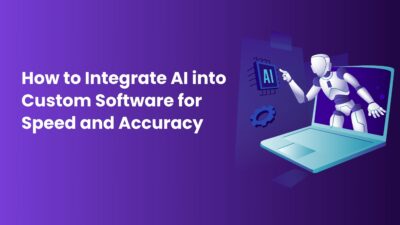Managing a fleet of vehicles, whether it’s for logistics, public transportation, or corporate services, has always been a complex task. With various moving parts like route optimization, driver behavior, fuel usage, and vehicle maintenance, fleet managers often find themselves juggling multiple systems and spreadsheets just to stay organized. That’s where Fleet Management Software (FMS) comes in—a digital solution built to streamline, automate, and optimize every aspect of fleet operations. This intelligent system empowers businesses to operate more efficiently, reduce costs, improve compliance, and deliver better service.
The modern fleet is no longer just about trucks and drivers—it’s about data, connectivity, and decision-making in real-time. Whether you manage a dozen vehicles or thousands, investing in smart fleet management software can completely transform your operations.
How Fleet Management Software Works
At its core, fleet management software acts as a centralized hub for all information and operations related to vehicles, assets, and drivers. It integrates data from GPS trackers, fuel cards, telematics devices, and mobile apps to create a single platform that allows managers to monitor and control their fleets more effectively.
When a vehicle is in use, the software collects real-time data on location, speed, engine performance, fuel consumption, and driver behavior. This data is sent to a cloud-based server where it is analyzed and visualized in an intuitive dashboard. Fleet managers can access this dashboard from any device to see real-time updates, generate reports, and make informed decisions on scheduling, routing, and maintenance.
Another important aspect is automation. The system can automatically assign tasks to drivers, send alerts for upcoming maintenance, or notify managers of speeding violations or route deviations. Over time, this leads to consistent performance improvements and cost savings.
Key Benefits of Fleet Management Software
One of the most immediate benefits of using fleet management software is cost reduction. By optimizing routes and reducing fuel waste, businesses can save significantly on operating expenses. The software also provides insights into driver behavior, helping reduce risks associated with speeding, harsh braking, and idling.
Improved vehicle maintenance is another crucial advantage. Preventative maintenance alerts ensure that vehicles are serviced on time, reducing the risk of unexpected breakdowns and prolonging vehicle lifespan. This results in lower repair costs and improved vehicle reliability.
Compliance and safety are also enhanced. With automated record-keeping, the software makes it easier to maintain logs for inspections, regulatory reports, and insurance requirements. Drivers can be evaluated regularly for performance and safety, reducing liability and improving overall accountability.
Real-time tracking and monitoring increase operational transparency. Managers can see where each vehicle is at any moment, which improves customer communication and delivery accuracy. For service-based businesses, this level of visibility enhances customer trust and satisfaction.
Lastly, scalability is an underrated benefit. Whether a company grows its fleet by 10% or 200%, the software scales seamlessly, providing a long-term solution that evolves with the business.
Features that Make Fleet Management Software Smart
Modern fleet software includes a suite of features designed to address every component of fleet operations. GPS Tracking is fundamental, offering live updates on vehicle locations. Route Optimization algorithms analyze traffic, distance, and fuel efficiency to suggest the best possible paths.
Telematics integration allows the system to monitor engine health, tire pressure, and fuel consumption. Driver behavior analysis tracks speed, idling, acceleration, and braking patterns, providing a score or report card for each driver.
Fuel management tools link to fuel cards or sensors to track spending, detect fraud, and analyze usage trends. Maintenance scheduling ensures vehicles are regularly serviced, with alerts for upcoming or overdue checks.
Mobile apps for drivers allow them to receive assignments, update job statuses, and communicate with dispatch in real time. These apps often include digital checklists for vehicle inspections and incident reporting.
Geofencing is another valuable tool, allowing managers to create virtual boundaries. If a vehicle enters or exits a predefined area, alerts are sent instantly, helping prevent unauthorized use or theft.
Real-Life Use Cases of Fleet Management Software
In the logistics and delivery industry, companies like FedEx and UPS have long relied on advanced fleet software to plan routes, track packages, and monitor driver performance. These tools help them maintain strict delivery schedules and handle thousands of deliveries daily with precision.
Public transportation systems use fleet management software to ensure buses and taxis run efficiently. Cities like London and Singapore have integrated such systems to provide real-time updates to passengers and reduce waiting times.
In the construction and utility sectors, where heavy machinery and service trucks are used, fleet management ensures equipment is maintained properly and operators are using resources efficiently. It’s also essential in coordinating complex projects where equipment needs to be relocated regularly.
Emergency services, such as ambulances and police fleets, depend on real-time location tracking and instant dispatching. Fleet software ensures that the nearest vehicle is dispatched, response times are minimized, and safety protocols are followed.
Even food delivery platforms like Domino’s Pizza and Uber Eats utilize fleet solutions to monitor delivery times, optimize routing, and manage hundreds of vehicles across various regions. These systems play a key role in customer satisfaction and business efficiency.
How to Develop Fleet Management Software
Building fleet management software from scratch requires a comprehensive understanding of both the transportation industry and software development. The process typically starts with gathering requirements. This involves interviewing stakeholders—fleet managers, drivers, dispatchers—to understand their pain points and feature needs.
Next comes designing the system architecture. A typical fleet solution consists of three main components: a cloud-based backend, a web dashboard for management, and a mobile app for drivers. The backend must handle massive amounts of real-time data, so scalability and speed are essential.
The development team then works on integrating GPS and telematics APIs, which form the foundation for vehicle tracking. Features like route planning, scheduling, driver behavior analysis, and maintenance logs are added during this phase. UX/UI design is also crucial to ensure the platform is user-friendly and intuitive.
Security is a major concern. Fleet data is sensitive and may include personal driver info, location history, and operational data. Encryption, access controls, and data compliance standards like GDPR must be implemented.
At this point, transportation software developers play a vital role. They bring in-depth knowledge of industry requirements and can leverage their expertise to build solutions that are both reliable and scalable. Their understanding of logistics infrastructure, GPS systems, and API integrations enables the creation of software that fits the real-world challenges fleet managers face daily.
After development, the software must undergo rigorous testing, including simulated driving scenarios and load testing. Once deployed, continuous updates and support are necessary to adapt to evolving needs and technology standards.
Future of Fleet Management Software
The future of fleet management software is increasingly tied to AI and machine learning. Predictive analytics will become more precise, allowing businesses to anticipate vehicle failures, optimize fuel consumption, and even predict driver fatigue. Autonomous fleet management, where the system can reroute vehicles or adjust schedules automatically based on traffic and weather conditions, is already in early testing stages.
Integration with electric vehicles (EVs) and smart charging stations is another rising trend. As fleets transition to greener energy, fleet software will need to track battery levels, schedule charging times, and find optimal charging locations.
Blockchain technology could offer a secure, tamper-proof way to record vehicle maintenance logs and driver histories, ensuring transparency and trust across organizations.
Lastly, IoT (Internet of Things) devices will become more prevalent. From smart sensors in tires to wearable tech for drivers, every component of the fleet ecosystem will be connected, feeding valuable data into the management platform for better decisions.
Conclusion
Fleet management software is no longer a luxury—it’s a necessity in today’s fast-paced, data-driven transportation world. By centralizing operations, improving transparency, reducing costs, and enhancing safety, this technology has revolutionized how fleets are run. From logistics companies to emergency responders, from city buses to food delivery bikes, the impact of smart fleet software is evident across every industry.
Developing such a solution requires deep technical and industry expertise, with transportation software developers at the core of this transformation. As technology continues to evolve, those who embrace smart, scalable fleet solutions will stay ahead of the curve, running their fleets not just faster—but smarter.


